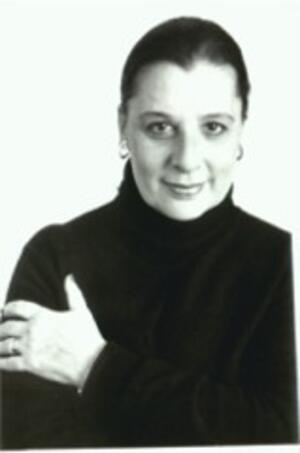Hadassah honors Orthodox feminist Blu Greenberg
Blu Greenberg, best known for her work on behalf of feminism within Orthodox Judaism, was honored with Hadassah's highest honor, the Henrietta Szold award for outstanding leadership in the Jewish community, on July 25, 2006. Greenberg, who shared the award jointly with her husband, Rabbi Irving "Yitz" Greenberg, thus joined a list of prominent world leaders—from Elie Wiesel to Yitzchak Rabin, Shimon Peres, and Golda Meir—to be so honored.
Although Greenberg has lectured and written on a variety of contemporary issues, her leadership has centered on her analysis of the role of women within Orthodoxy and the intersections and possible reconciliations of feminism and traditional Judaism. Born in 1936 and raised in New York City, Greenberg herself received a strong Jewish and secular education. Greenberg first confronted the differing expectations for men and women when, having gone to Israel during her junior year of college, she wished to extend her stay in order to study with renowned scholar Nechama Liebowitz. Discouraged on the grounds that it was not what a "nice Orthodox Jewish girl would do," she felt that encouragement to stay would have been forthcoming had she been male. Greenberg came home, and went on to earn graduate degrees in clinical psychology and Jewish history.
Her entry into public life came when, in 1973, Greenberg—then an instructor in history at the College of Mount St. Vincent—was asked to give the opening address at the First National Jewish Women's Conference. She has identified that opportunity as the turning point at which she began to realize that strong commitments to both feminism and traditional religion could co-exist and even enrich each other. Her 1981 book, On Women and Judaism: A View from Tradition, set the agenda for pursuing transformation in the public roles of Jewish women through halakhic (Jewish legal) means. In 1997, Greenberg founded the Jewish Orthodox Feminist Alliance (JOFA), now an international alliance that sponsors conferences, works on behalf of agunot (women unable to obtain a religious divorce), publishes a journal, maintains a speakers' bureau, and pushes for an expanding role for observant women within public Jewish religious life.
Greenberg has also been chair of the National Jewish Book Council, the National Jewish Family Center, and the N.Y. Federation's Task Force on Jewish Women. In 2000, she founded One Voice: Jewish Women for Israel. She has also been active in Jewish-Palestinian dialogue. In addition to numerous articles in a variety of publications, her other books include How to Run a Traditional Jewish Household (1983); Black Bread: Poems, After the Holocaust (1994); and, with Reverend Linda Tarry, the children's book King Solomon and the Queen of Sheba (1997).
Sources: Jewish Women in America: An Historical Encyclopedia, p.552; www.jofa.org; www.womensenews.org/article.cfm/dyn/aid/1639.




curious as to why her husband was included in the award